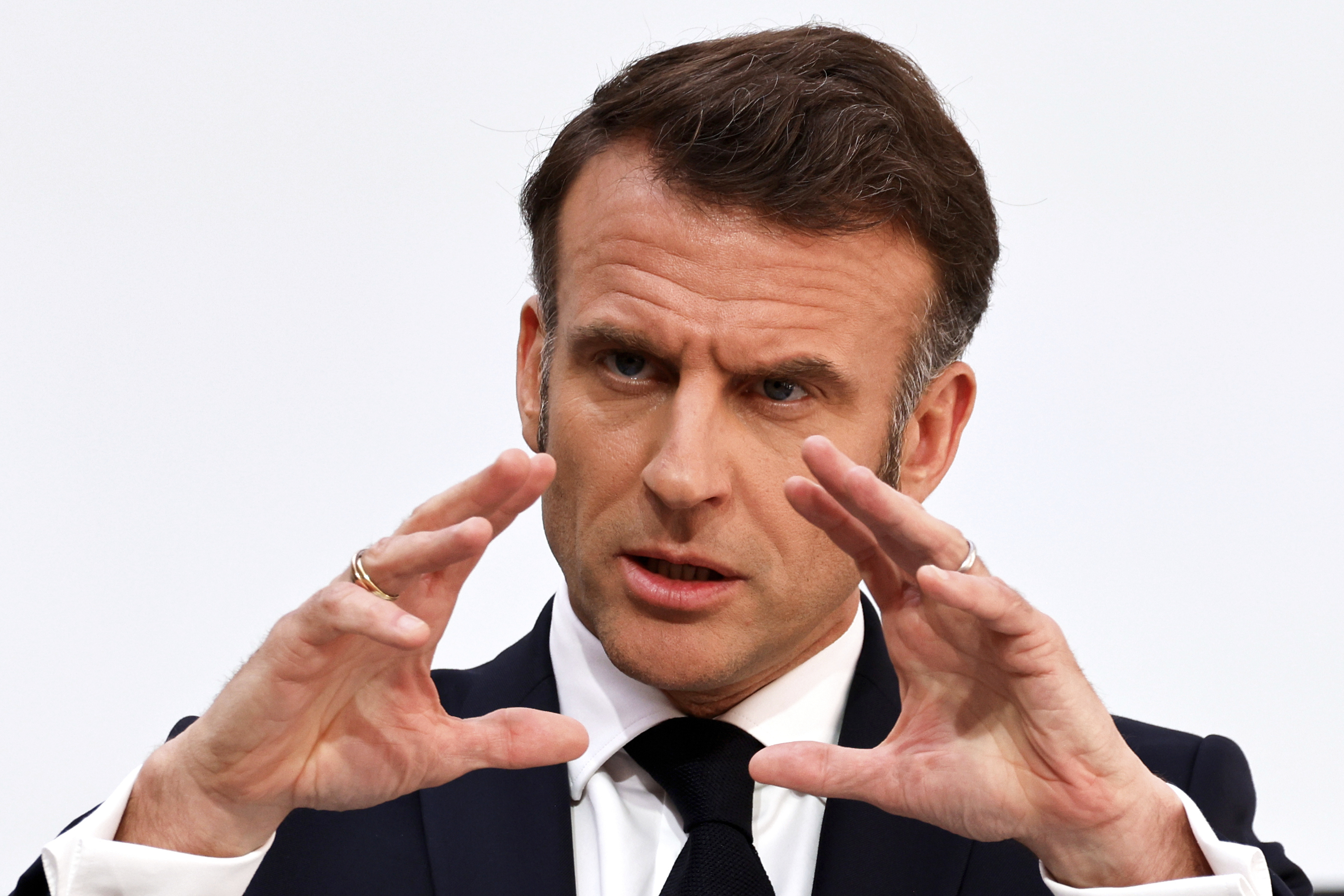He has been saying it since 2018: "Europe cannot be protected without a true European army." Emmanuel Macron took advantage of a visit to the Verdun front, where the largest battle of World War I took place, to prematurely launch his idea, picked up somewhat reluctantly by the then Chancellor Angela Merkel.
Donald Trump had just announced his withdrawal from the nuclear agreement (INF) signed in 1987 by Reagan and Gorbachev that marked the end of the Cold War. Vladimir Putin had already annexed Crimea and was playing with fire in eastern Ukraine. Macron thus acknowledged his concern for everything that was looming: "Who is the main victim? Europe and its security."
Seven years later, with the Republican president distancing himself from Europe and the Russian president in a renewed position of strength, Macron has decided to definitively boost his European defense project (and burying under the carpets of the Elysee Palace the political crisis of recent months, with a completely polarized and practically inoperative Parliament).
Macron these days invokes the spirit of Charles De Gaulle, even at the risk of being compared to Napoleon. His war of words with Vladimir Putin, following his famous speech on March 5 about "the Russian threat," served to enhance his profile as the 'commander in chief' of European rearmament. With his appeal to "the effort of war," his televised intervention had a somewhat calculated "Churchillian" rallying cry, praised and criticized in equal measure for its alarmism.
"Our security is threatened," "our innocence has come to an end," "we are entering a new era"... Macron assumed his new role like never before and could not have been clearer: "The future of Europe must not be decided in Washington or Moscow".
And in doing so, he made a case for becoming Vladimir Putin's European nemesis, accusing him of "violating our borders to assassinate his opponents," "manipulating elections," "testing our limits by sea, air, in space, and behind our screens," and allocating more than 40% of his budget to military expenses. As a counterpoint, Macron emphasized France's central role in European security and acknowledged that he is willing to consider extending the French nuclear umbrella to allies.
"Macron's speech was a warning and at the same time a continuation of the efforts he has been making since 2017," warns Michael Benhamou, director of the Europe's War Institute (OPEWI). "France has become the center of European defense. European leaders have already met in Paris, then in London, and again in Paris."
The summit of European leaders at the Elysee Palace on February 17 was a prelude. On March 11, Macron held an unprecedented conclave with around thirty Chiefs of Staff from European countries (plus Japan, Australia, and Canada). With intervals in London, and with "premier" Keir Starmer becoming an indispensable ally despite Brexit, Paris once again became the epicenter on March 27 with the meeting of the "volunteer coalition" (for a hypothetical peace mission in Ukraine).
In between these events, Macron has spared no effort to enhance his military profile. Last week, surrounded by dozens of soldiers and Mirage fighter jets, he staged his new role at the Luxeuil-Saint-Sauveur military base to announce the reinforcement of nuclear deterrence with two new squadrons of Rafale fighter jets: "Our country and our continent will have to continue defending themselves and preparing if we want to avoid a war."
The next day, he summoned the major arms manufacturers (Safran, Thales, Naval Group, Dassault, KNDS) and representatives of 4,000 small and medium-sized companies in the sector with a clear objective: to assess if the industry can increase its production and at what pace.
In the meantime, he has instructed Prime Minister François Bayrou to make the necessary budget adjustments to increase Defense spending from 2.1% of GDP to 3 or 3.5%. His goal is to reach 90 billion euros annually, an increase of over 30 billion from the current budget. The "adjustments" are expected to be made in two months.
France is currently the seventh military power in the world and the first within the European Union, according to the Global Firepower ranking. The country has 290 nuclear warheads as part of its deterrent strategy. France has a nuclear-powered aircraft carrier, four nuclear submarines equipped with ballistic missiles, and 197 fighter jets. The army has 200,000 active soldiers and 44,000 reservists. The Achilles' heel, according to analysts, is the shortage of conventional ammunition.
In his "project" for the rearmament of Europe, Macron has found a close ally: the German Christian Democratic leader and likely Chancellor Friedrich Merz, whom he invited to dinner at the Elysee Palace three days after his electoral victory, and who is committed like him to boosting Defense spending. Macron also plans to rely in a special way on the Polish Prime Minister, Donald Tusk, who has also given a spectacular boost to what is already the third largest NATO army, with 216,000 troops, aiming to double by 2030 and to be complemented by military training of the population, following the example of Ukraine.
